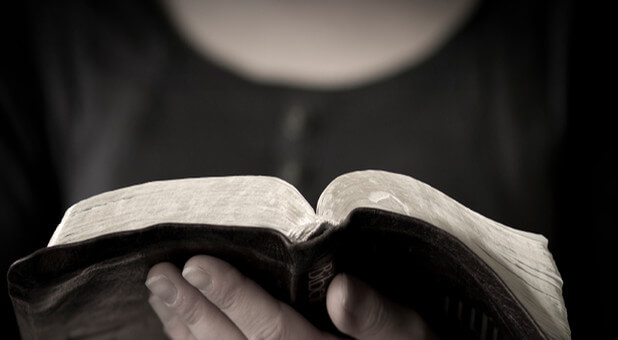Sarah respected Abraham but she was not afraid of him and had no qualms about confronting him when the situation called for it. One stark example occurred at the celebration for Isaac at the time of his weaning. During the festivities Sarah saw Ishmael, Abraham’s son by Hagar, mocking and scoffing. She proceeded to inform Abraham that he must get rid of Ismael and his mother, for the son of this bondwoman shall not be heir with my son, namely with Isaac (Genesis 21:10).
Now, Abraham loved Ishmael and Sarah’s demand was very painful to him. The Scripture says her ultimatum was very displeasing or “very distressing” to him because of his son. Nonetheless, God took Sarah’s side in the situation. He spoke to Abraham and said, Whatever Sarah has said to you, listen to her voice; for in Isaac your seed shall be called.
The word “listen” in this verse means to listen with the intent of carrying out what has been said. God actually ordered Abraham to obey Sarah in the situation. It was not a matter of who had authority over whom; it was a matter of what was right in the situation. God was, in effect, saying to Abraham, “If you want to remain in the center of my plan and purpose, you must do what Sarah has said, for she is right.” The right thing is not always the easy thing and Abraham, to his credit, did the right thing even though it was very painful for him.
Sarah’s Co-Equal Status with Abraham
The evidence shows that Sarah was a strong woman who loved and respected her husband, but was not in any way fawning or subservient toward him. Her very name is derived from the Hebrew wordsar, which means “prince” or “princess,” indicating that she was from a royal or aristocratic family. This is confirmed by the fact that personal pronouns are used when Scripture speaks of her departure with Abraham from Haran to go into the land of Canaan. Genesis 12:3 says that Abram took his wife Sarai and all their possessions . . . and the people whom they had acquired in Haran. In other words, it was not Abraham’s possessions and servants, it was their possessions and it was the people whom they had acquired in Haran.
One maid servant that Sarah had acquired was the Egyptian named Hagar. It was Hagar whom Sarah gave to Abraham to be a surrogate mother for her when she was unable to bear a child. When Hagar conceived and began to treat Sarah with contempt, Sarah dealt harshly with her and Hagar ran away. God, however, spoke to Hagar and instructed her to return, saying, Return to your mistress and submit yourself under her hand (Genesis 16:9).
Notice that God did not tell Hagar to return to Abraham, but to Sarah. He also referred to Sarah as Hagar’s “mistress,” a word that is from the Hebrew word ghebeer meaning “master” or “lord.” God Himself recognized Sarah’s place alongside Abraham in the household and that Hagar was Sarah’s responsibility, not Abraham’s.












